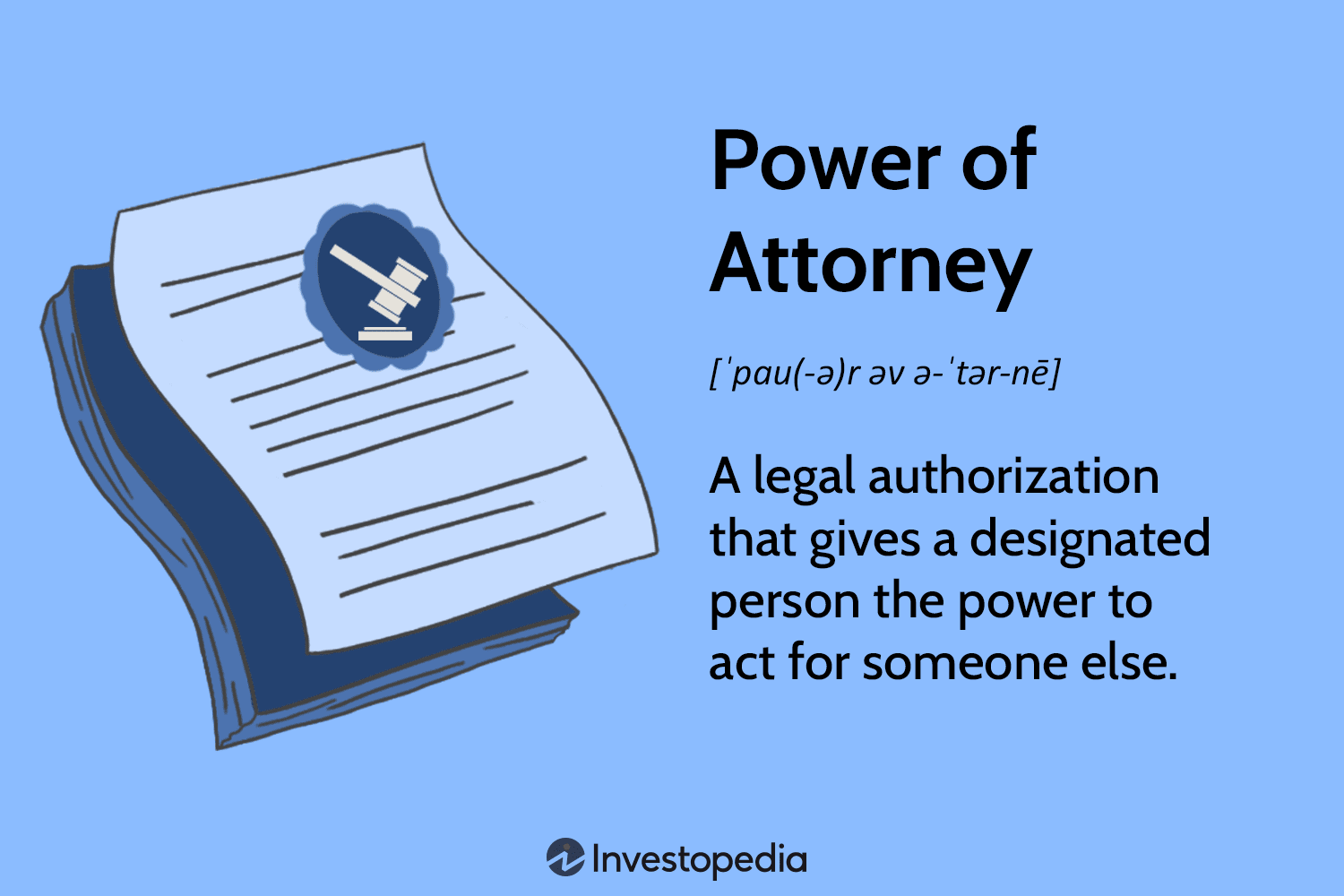Understanding the Power of Attorney: An Essential Legal Tool
A power of attorney (POA) is a vital legal instrument that grants another person the authority to act on your behalf if you are unable to do so. This document is especially important in situations where unforeseen circumstances prevent you from managing your affairs, such as illness, accident, or absence. The power of attorney can cover a wide range of matters, including financial decisions, healthcare choices, and legal issues.
Choosing the right person to hold your power of attorney is a significant decision, as this individual will have the power to make critical decisions for you. Therefore, it is crucial to select someone trustworthy, responsible, and capable of handling sensitive information and situations. The person you appoint is often called your agent, attorney-in-fact, or proxy.
Types of Power of Attorney
There are several types of power of attorney, each serving different purposes and scopes of authority. Understanding these types will help you decide which suits your needs best.
- General Power of Attorney: Grants broad authority to your agent to act in almost all matters on your behalf, including financial transactions, managing property, and handling legal affairs.
- Durable Power of Attorney: Remains effective even if you become incapacitated. This type ensures continuous management of your affairs if you lose the ability to make decisions.
- Limited (or Special) Power of Attorney: Confines your agent's authority to specific tasks or time frames, such as selling a property or handling a particular financial matter.
- Medical (or Healthcare) Power of Attorney: Authorizes your agent to make medical decisions on your behalf if you are unable to communicate your wishes. This is critical for healthcare planning.
Why You Need a Power of Attorney
Having a power of attorney in place is a proactive measure that ensures your affairs are managed according to your wishes, especially during emergencies when you might be incapacitated. Without a POA, family members may face lengthy court procedures to gain authority to act on your behalf, which could delay critical decisions.
The benefits of having a power of attorney include:
- Ensuring your financial and legal matters are handled promptly and effectively;
- Providing someone you trust the authority to make important decisions during emergencies;
- Avoiding court-appointed guardianship or conservatorship;
- Allowing for seamless management of healthcare decisions if you become unable to communicate.
How to Choose the Right Agent
Selecting the right agent to hold your power of attorney is arguably the most critical step in the process. This person will be entrusted with significant responsibility and authority, and their decisions will impact your life profoundly.
Consider the following factors when choosing your agent:
- Trustworthiness: The agent must be honest and reliable, as they will have access to sensitive information and control over your assets.
- Responsibility: Appoint someone who can manage complex matters and remain calm under pressure.
- Availability: The person should be available and willing to act on your behalf as needed.
- Proximity: Consider choosing someone nearby to handle affairs promptly, especially healthcare decisions.
- Understanding of your wishes: The agent should be familiar with your values and preferences to make decisions aligned with your desires.
Steps to Create a Power of Attorney
Creating a power of attorney involves several essential steps to ensure the document is valid, clear, and legally binding.
- Determine the type of POA that suits your needs (general, durable, limited, or medical).
- Select your agent carefully based on trust, responsibility, and their ability to act in your best interest.
- Consult with a legal professional to draft the document, ensuring it complies with your state's laws and clearly outlines the powers granted.
- Sign the document in the presence of the required witnesses and/or notary public as mandated by local laws.
- Distribute copies to your agent, family members, financial institutions, healthcare providers, and keep a copy for yourself.
When to Update or Revoke a Power of Attorney
Your circumstances may change over time, requiring updates or revocation of your power of attorney. It is crucial to keep this document current to reflect your wishes accurately.
Consider updating or revoking your POA if:
- You want to appoint a different agent due to a change in trust or availability;
- Your agent is no longer capable of fulfilling their duties;
- Your wishes regarding healthcare or financial matters have changed;
- You have experienced significant life events such as marriage, divorce, or relocation;
- The POA has become outdated due to changes in laws or regulations.
Common Misconceptions About Power of Attorney
There are many myths and misunderstandings related to POA that can cause hesitation or improper use.
Some common misconceptions include:
- A POA is only necessary for the elderly — In reality, anyone can face sudden incapacity, making POA important at any age.
- The agent can make any decisions without restrictions — The powers granted are limited to what is specified in the document.
- A POA automatically expires if you become incapacitated — Durable POAs explicitly remain effective in such cases.
- Creating a POA means losing control over your affairs immediately — You maintain control until incapacitation or conditions outlined in the document.
Legal Considerations and Compliance
To ensure your power of attorney is valid and enforceable, it must comply with the laws of your jurisdiction. These laws dictate how POAs are created, witnessed, notarized, and revoked.
It is advisable to seek professional legal assistance when drafting a POA to:
- Ensure all formalities are observed;
- Tailor the document to your specific needs and circumstances;
- Address potential conflicts or ambiguities;
- Help you understand the scope and limitations of granting authority.
Conclusion
Having a power of attorney is a wise and necessary step to safeguard your interests in unpredictable situations. It empowers a person you trust to handle your financial, healthcare, or legal matters when you are unable to do so. By carefully selecting a reliable agent, staying informed about your legal options, and updating the document as needed, you can ensure your wishes are respected and that your affairs are managed responsibly.
If you need expert legal assistance to create, modify, or understand the power of attorney process, please reach out to us through the communications provided in the bio or send a private message. Our team at Legal Marketplace CONSULTANT is here to support you every step of the way.
Legal Marketplace CONSULTANT is a company specializing in comprehensive legal services for individuals and businesses. Our team includes experienced lawyers, legal consultants, tax advisors, auditors, and accountants committed to providing tailored legal solutions in compliance with current legislation. Contact us for reliable legal support.































